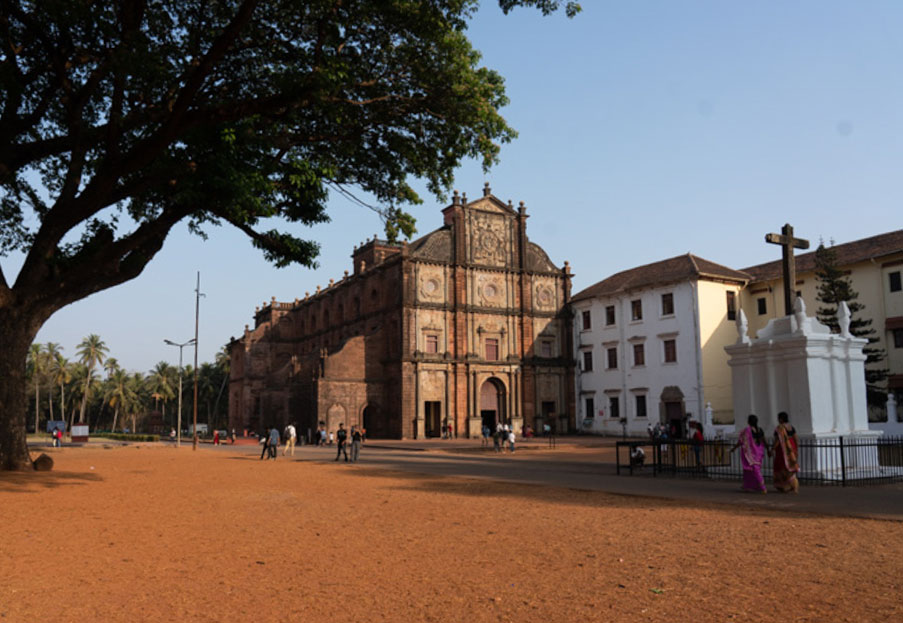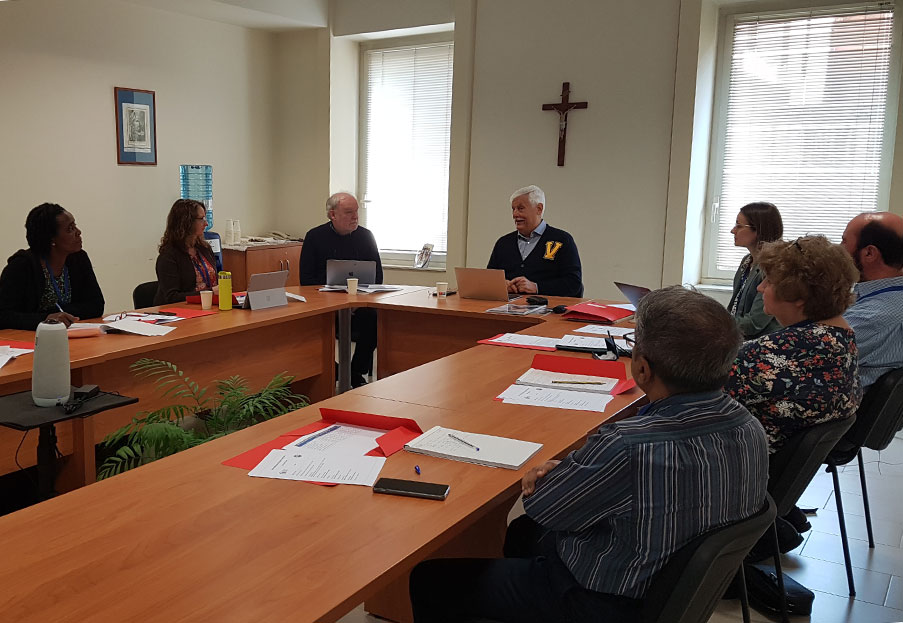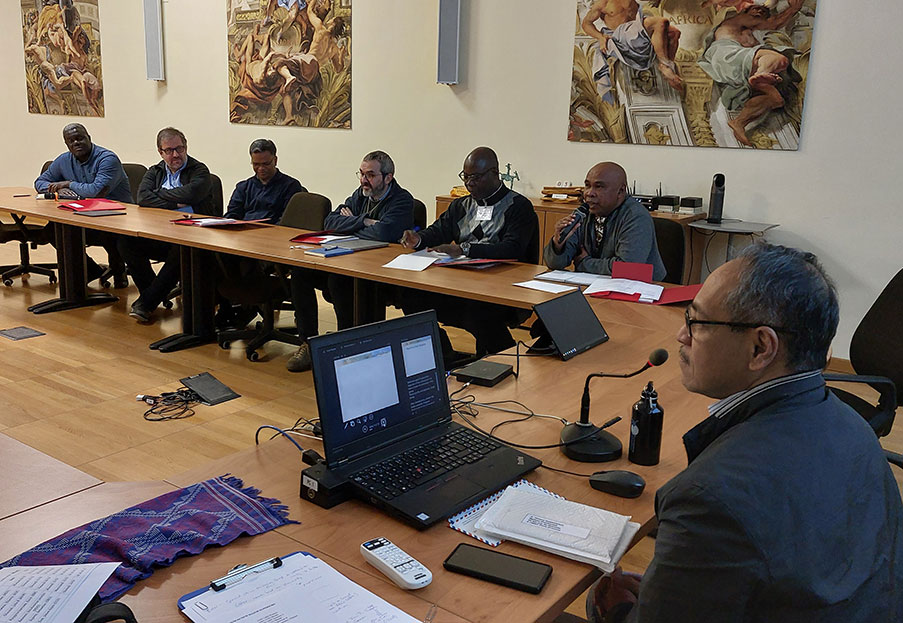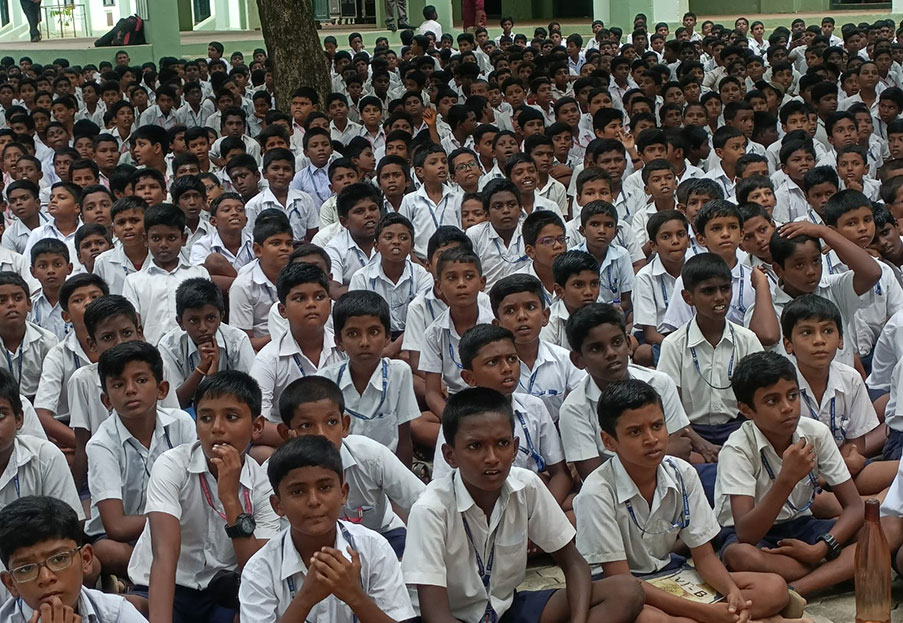An appeal to focus on eco-education in COP26
By Charles Dhinakaran, Manager at the Conference Development Office of the Jesuit Conference of South Asia
Jesuits in India appeal to policy makers to give focus to eco-education in COP26 to raise awareness and action on environmental concerns and encourage public participation to tackle climate change issues.
The Jesuit Ecological Network in India has more than 30 years of engaging in initiatives such as awareness creation, eco-education, organic farming, renewable energy, afforestation, preservation of biodiversity and endangered plant and animal species and there is much work being done to prevent the destruction of the natural environment and protect Mother Earth, Our Common Home. These efforts contribute to raising awareness in protecting the environment and towards achieving the UN Sustainable Development Goals.
The Universal Apostolic Preferences (UAPs) of the Society of Jesus and the Conference Apostolic Preferences (CAPs) seek to deepen personal, communal, and institutional conversion. They are guides for improving both the apostolic work of the body of the Society as a whole and the different ways in carrying out our ministries, where the preferences will take flesh. The fourth UAP, To collaborate in the care of our common home, and the third CAP, To promote ecology and justice, further emphasize the need to establish a right relationship with the environment.
Pope Francis’ encyclical, Laudato Si’ (Praise Be to You) is an urgent call to tackle the current ecological crisis by making a paradigm shift that will allow all human beings to live sustainably in dignity. Pope Francis critiques consumerism and irresponsible development, laments environmental degradation and global warming, and calls all people of the world to take swift and unified global action.
Increased economic activities in developing nations create a need for more energy and consumption demand. Energy production, the extensive adoption of unsustainable life practices, and the related pollution have led to severe environmental degradation. The notion that as countries become developed, environmental-friendly technologies and lifestyles will be adopted and there won’t be any further environmental degradation, has proven wrong in many cases.
Many developing countries, already equipped with environmental policies, legal frameworks, and sophisticated economic instruments, strangely face the worsening of environmental conditions even with mitigating measures in place.
This calls for a reflection on the role of citizens in making the world a better place to live for everyone, irrespective of differences. One of the major constraints faced is the limited public participation in pro-environmental behaviours.
While the limited legal and economic framework for environmental protection is known and highlighted well, an equal emphasis and focus is on the need for public participation in pro-environmental behaviours. There is also an interconnection between the production and consumption and the demand and supply that determines the production. In 1998 UNDP Human Development Report, it was observed that the increase in consumption and unbalanced consumption patterns placed enormous pressure on the environment and contributed to pollution.
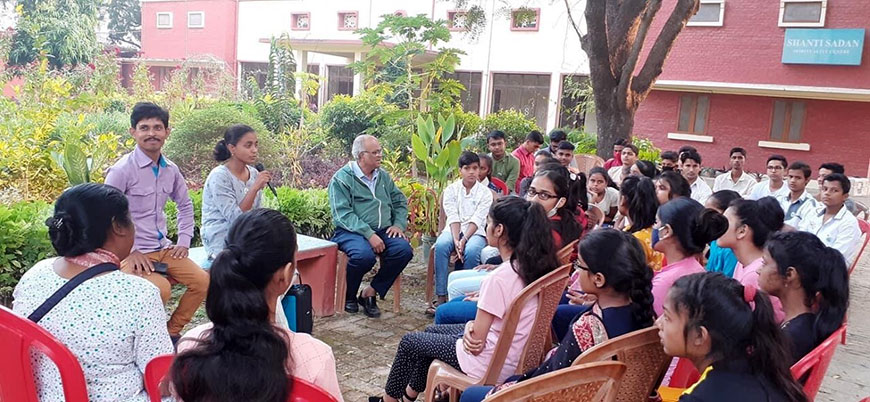
Setting aside deliberate marketing strategies, people still make the choices to purchase and consume. People have a role as equal participants in shaping the future for all and adopting a sustainable lifestyle to protect the environment and contribute to mitigating the impacts of climate change.
In an effort to respond to environmental concerns, the Jesuit Environmental Network is geared towards promoting collective responsibility to care, nurture, and sustain the Earth, especially those at the margins, and manifested in lifestyle and action. The network is in operation in 16 provinces across the country. Engagements in the network are wide and varied and the stakeholders at each network are different.
Eco-education is one the major thematic areas of the network and a number of partners with Tarumitra, Students Forum for Environment, Gujarat Jesuit Ecological Mission and Social Centre Ahmednagar, are leading the ecological movement among school and college students. Some of the significant partnerships with students are:
- Eco-clubs in schools with training on sustainable farming, organic farming, etc
- Awareness campaigns on importance of tree planting
- Setting up and management of bio-reserves
- Transformation of roadside garbage dumps into green oxygen belts through planting trees and flowering plants
- Eco-friendly celebration of festivals
- Leaders in Environmental Forum, an education program consisting of outdoor workshops on ecological
- Development of eco-audit parameters on water, energy, waste, land, and food for Jesuit communities as minimum standards for green institutions
- Environment Awareness Programs for students, teachers, youth, and women
- Green Teacher Programme for inspiring and training teachers to engage the students with innovative eco education
- Setting up of organic kitchen gardens in schools
- Art workshops and exhibitions with children, youth, and eminent as well as emergent artists in Kerala and Gujarat around prominent ecological themes
These programs are primarily aimed at inspiring and training teachers and students to engage in environmental activities and in promoting environment-friendly lifestyles give an opportunity for teachers to be more effective in environmental education. So far, over 400 schools and colleges reach out to five lakh schools and college students.
India is the second most populous country on the planet and the largest democracy in the world, and the dissemination of environmental education and awareness among the masses will translate to a monumental change in people’s attitude towards sustainable practices, environment-friendly approaches, green technology adoption, caring for the nature and wildlife and conservation of biodiversity, etc. Transforming India is equal to transforming a significant part of the globe towards better ecosystems, sustainable and healthy lifestyles, and conservation of natural resources.
[Source: Ecojesuit]
